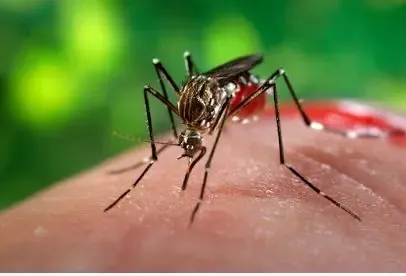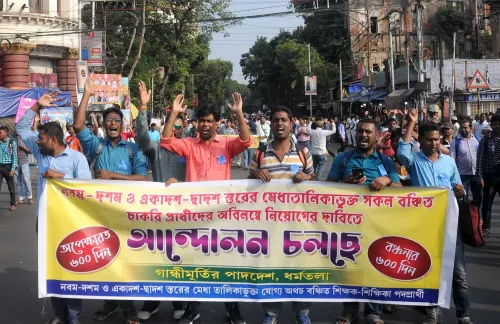Government's Ongoing Efforts for a 'Malaria-Free India': Anupriya Patel

Synopsis
Key Takeaways
- India aims for a 'Malaria Free India' by 2030.
- 69% decrease in malaria cases reported since 2017.
- 0.8% of global malaria cases are in India.
- Importance of public awareness and preventive measures.
- Over 600,000 lives lost to malaria in 2023.
New Delhi, April 25 (NationPress) The government is actively striving towards realizing the vision of 'Malaria Free India', stated Union Minister of State for Health and Family Welfare Anupriya Singh Patel on the occasion of World Malaria Day this Friday.
Each year, World Malaria Day is commemorated on April 25 to enhance awareness regarding this disease. The theme for this year, “Malaria ends with us: Reinvest, reimagine, reignite”, seeks to invigorate efforts across all levels, from global policies to community initiatives, to expedite the journey toward malaria elimination.
“On this significant day, it is our duty to spread awareness about a perilous disease like malaria and undertake collective initiatives to annihilate it,” Patel conveyed through a post on the social media platform X.
“The Government of India is persistently working towards the goal of 'Malaria Free India'. Let us all unite to make this campaign a triumph,” she further remarked.
Malaria is a severe illness transmitted to individuals by female Anopheles mosquitoes. Fortunately, it is both preventable and treatable.
India is targeting to eradicate malaria by 2030, with a firm commitment from the government to reach zero indigenous cases by 2027.
The latest World Malaria Report 2024, published by the World Health Organization (WHO) last December, highlighted that India has made significant strides in malaria elimination, achieving a 69 percent decrease in cases and a 68 percent reduction in fatalities from 2017 to 2023.
In 2023, India accounted for merely 0.8 percent of global cases and exited from the WHO's High Burden to High Impact (HBHI) group in 2024, marking a vital public health milestone.
“Each year, millions are impacted by malaria, a disease that is preventable and curable,” Patel emphasized.
To avert the disease, she advised the public to maintain cleanliness, shield themselves from mosquitoes, wear long-sleeved clothing, use mosquito nets, and apply repellents. Immediate medical attention is crucial if fever symptoms arise.
Worldwide, around 2.2 billion cases of malaria and 12.7 million deaths due to this mosquito-borne disease have been prevented since 2000, according to WHO.
Thus far, the WHO has acknowledged 45 countries and 1 territory as malaria-free, with numerous nations exhibiting a low malaria burden making consistent progress towards eradication.
Among the remaining 83 malaria-endemic countries, 25 reported fewer than 10 cases of malaria in 2023.
Despite notable advancements, malaria continues to pose a significant public health challenge, with nearly 600,000 lives lost to the disease in 2023 alone. The African Region remains the most affected, bearing approximately 95 percent of the annual malaria burden.









